By Jill Habig, founder and CEO, Public Rights Project
When I started Public Rights Project, I didn’t set out to specifically serve women in government. But I’m very proud of the fact that, in many ways, that’s what’s happened – because time and again, women have shown the measurable impact they have in their roles.
Through our fellowship programs, we’ve trained over 200 people in the principles and practices of affirmative litigation. Over half are women. And our Election Protection Hub mostly serves women because local election administration is one area where women are overrepresented in government.
As we celebrate Women’s History Month, I can’t ignore that it comes at a time when women’s rights are under relentless attack. Now more than ever, we need to learn from the women trailblazers who came before us and from those who continue the fight for civil rights today. History has shown that when we stand up for what’s right, we are all better off.
Roe v. Wade is an example of this. For decades, women could access reproductive health care without fear, risk, or prosecution. The most core human decision I can imagine ever making is whether or when to have children. As someone who gave birth a year before the U.S. Supreme Court issued their Dobbs decision, I’m continually reminded of how fortunate I was to receive care that millions of women are now being denied.
During my pregnancy, I ended up in the hospital because my son’s heartbeat was difficult to detect. I also developed high blood pressure and was given misoprostol to induce labor and prevent my condition from deteriorating. Each time something went wrong, I worried about my health and the wellbeing of my son. But I never worried about waiting for care while my doctor talked to an attorney. And I never worried about traveling to another state to receive treatment.
In just the few years since Roe was overturned, we’ve already seen the initial devastating consequences, like spikes in maternal and infant mortality. Take the ProPublica investigation into the deaths of two pregnant women in Georgia. Or sepsis rates doubling in Texas. These are terrifying statistics, in a country already far behind on maternal health and mortality, especially for Black women. The continued criminalization of abortion is unacceptable. Prosecutors have no business being in a doctor’s office with patients.
These brazen attempts to control women’s bodies come as the Trump administration ramps up misogynistic and anti-DEI attacks to discredit people of color and women in positions of power. These actions, which include removing women from government websites, threaten to send women’s rights back to the Dark Ages. It’s not a coincidence that attacks on reproductive rights are happening alongside attacks on gender-affirming care and the trans community in general. And it’s not just about pregnancy or childbirth. This is part of a broader war on women’s freedom and leadership. When we lack bodily autonomy, we have very little agency. And it has a cascading effect on our safety, our economic security, and the trajectory of our lives.
But, here’s what gives me hope.
Our local government partners are dedicated women’s rights advocates who fight against abortion bans that criminalize basic care and the doctors who provide it. For instance, Pima County Attorney Laura Conover has fought to protect safe, legal abortion access. Because of her leadership, abortion access was maintained in southern Arizona. And Kansas City Mayor Quinton Lucas, a longtime advocate for reproductive rights, pushed back on Missouri state officials who wanted to prevent a ballot measure about abortion access from reaching voters last year.
Our local election partners also work tirelessly to protect rights in their communities. I’m encouraged by leaders like Saginaw County Clerk Vanessa Guerra, who shared why women election officials are essential for ensuring women's voices are heard.
“Women care about the state of the economy and education just the same as men, but at times these issues may impact our lives differently,” Guerra said. “It is important that women serve in our government so they can share those differences and seek to improve upon them.”
I founded Public Right Project with the vision that if we gave local government officials a playbook to advance civil rights, and a community of like-minded peers, we could create greater trust in our government and see more communities thriving.
Every day, I’m thankful for the strong network of partners we’ve built at Public Rights Project. And I’m encouraged to see more women at the helm of this work, despite the myriad challenges they’re facing. Because of their courage and commitment, we can build a better future and a multiracial democracy where everyone truly thrives.





